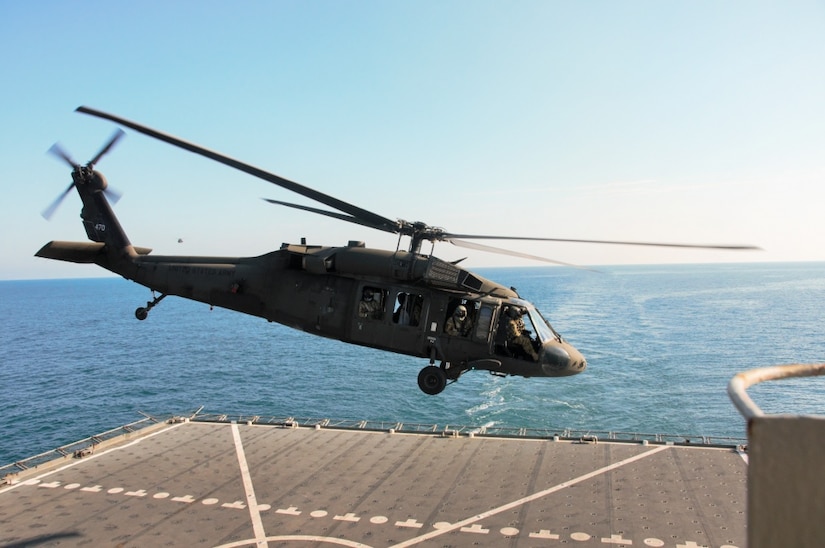By Terri Moon Cronk, DoD News, Defense Media Activity
WASHINGTON -- The Pentagon’s chief policy maker addressed
the Aspen Security Forum last night about the need for the United States and
Russia to seek common collaboration on issues of national security concern as
such opportunities might arise.
In Aspen, Colorado, John C. Rood, undersecretary for defense
for policy, said of the two near-peer competitors outlined in the 2018 National
Defense Strategy – China and Russia – the latter is the larger near-term threat
because of the overwhelming lethality of its nuclear arsenal and some of the
behavior the Russian government has exhibited, such as threatening NATO allies
and illegally annexing Crimea.
Overall, globally, “[we] have to stand firm in defending the
ideals and the values of the international rules-based order we’ve put in
place, [which] is of benefit for all,” the undersecretary said. “We’ve got to
work very closely with allies – [and take] steps to make NATO fit for our
times. And the European Deterrence
Initiative is also getting some greater momentum,” he added.
“We also have to be open to opportunities for
collaboration,” with Russia, Rood emphasized. “Where our interests align and we
have an opportunity to do something together with the Russians, we should look
for those opportunities.”
One such opportunity has been the “deconfliction” line in
Syria between the United States and Russia, where the U.S. military is working
to defeat the Islamic State of Iraq and Syria, while Russia defends the Syrian
president’s regime in a civil war.
Strategic Stability
“We would also like to talk more about strategic stability,
making sure there are clear understandings between the United States and
Russia, about these terribly lethal weapons that we both control, and talk
about the future of nonproliferation,” Rood said of potential future
opportunities with Russia.
“We have shared interests in the nonproliferation of weapons
of mass destruction and their means of delivery,” he added. “It’s an area where
we’ve had a lot of good cooperation from Russia in the past. This is another
area we can collaborate on if there’s enough of an alignment of interest.”
Another concern the United States has with Russia is its
lack of respect for the territorial integrity and sovereignty of NATO nations,
he said.
“That’s why we’re doing things like deploying, on a
rotational basis, troops in four countries along NATO’s eastern periphery; why
we’re doing things like the Four-30s initiative,” in which NATO allies, by the
year 2020, would have 30 mechanized battalions, 30 air squadrons and 30 combat
vessels ready for deployment in 30 days or less. The Four 30s initiative was
announced at the June 7-8 meeting of NATO defense ministers in Brussels.
North Korea
On North Korea, Rood said it is a solemn obligation for
America to make sure that nation makes good on its offer to return the remains
of 5,300 U.S. service members from the Korean War, so that American families
can have closure. “We’re encouraged that there could be a return of remains in
the near future,” he said.
Rood said the Defense Department is hopeful to see progress
in North Korea’s efforts to denuclearize.
“What gives me hope this time is [North Korean leader Kim
Jong Un] is a different leader than his father and his grandfather,” the
undersecretary said of Un’s main focus on the economy, rather than making the
military his priority. “I have deep skepticism of denuclearization and their
activities, but I’m hopeful,” he said.
Iran
The National Defense Strategy also lists the malign
influence of Iran as another major challenge to the United States, and Rood
noted the long-standing concern the nation has had over Iran’s nuclear program,
in addition to other issues, such as its support for terrorism.
As Iran continues to threaten to close shipping in the
Persian Gulf to other nations, he advised the Iranians against such action.
“One of our missions for the United States military is, if
called upon, to continue the free flow of commerce in that strategic waterway,
whether it is vital oil shipments or other commercial goods, [and] to allow for
the free and open navigation in the gulf,” Rood said. “Therefore, I really
discourage the Iranian government from thinking about trying to interrupt that
free flow of commerce. It would not be in their interest.”









No comments:
Post a Comment